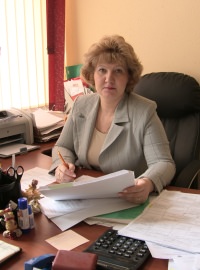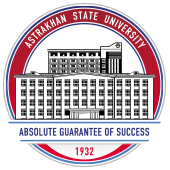2014 Admission Campaign: April
 28.04.2014
28.04.2014
Dr. Lyudmila Tovarnichenko, Executive Secretary of the Admission Commission of Astrakhan State University, has told us about changes in admission rules owing to inclusion of new regions into the Russian Federation, as well as about the work of the Admission Commission.
 “April mainly concerned issues of admitting graduates from two regions that recently joined Russia - the Republic of Crimea and the town of Sebastopol. The federal Ministry of Education & Science set us a letter to provide quotas for future students from these two regions and accommodation for them. We’re ready to admit up to 150 students from these regions in different specialties.
“April mainly concerned issues of admitting graduates from two regions that recently joined Russia - the Republic of Crimea and the town of Sebastopol. The federal Ministry of Education & Science set us a letter to provide quotas for future students from these two regions and accommodation for them. We’re ready to admit up to 150 students from these regions in different specialties.
Now we look forward to getting the final versions of documents concerning the terms of admitting students from these regions. Projects of those documents take into account that educational standards in Crimean and Sebastopol’s secondary schools are different from ours. Most likely, such graduates will be able to choose the preferred form of entrance exams to take: either a test, or an interview, or the Unified State Examination - if an applicant believes he or she knows a discipline well. The USE, which is taken only once, makes it easier to apply for several universities at the same time, while tests or interviews must be passed at each university individually. Both variants have advantages and disadvantages.
Future students from Crimea and Sebastopol will be able to apply for admission on budget-financed terms within special quotas. ASU can determine the number of entrance examinations for them itself. In this case, there will be a separate entrance contest for such applicants. But such prospective students can claim for budget-financed or self-paid studied on equally basis - then they will have to take entrance exams just like any other future student.
There are also projects of documents that determine how to admit Russian citizens who studied at Ukrainian universities and who were expelled from them for this or that reason. Special admission rules are being developed for such future students. Preliminarily (but not finally), a university can admit such citizens without entrance exams to the year of studies that they can claim for, independently of availability of budget-financed places for them.
While secondary school graduates are going to take the Unified State Exam, we’re arranging various profession-oriented events. We recently went to Kazakhstan to arrange such events there. We regularly arrange meetings at secondary schools with their graduates. Events that we arrange within our University are aimed at school graduates and their teachers. We constantly talk with secondary school teachers and their students; we tell them about admission terms, about seminars and lectures for teachers, about studies at master and PhD courses. Our colleagues from other universities are interested in continuing their education, and that will help them reach a new professional level”.
Interviewed by N.I. Kirillova (the Innovative Laboratory of Information Linguistics)


